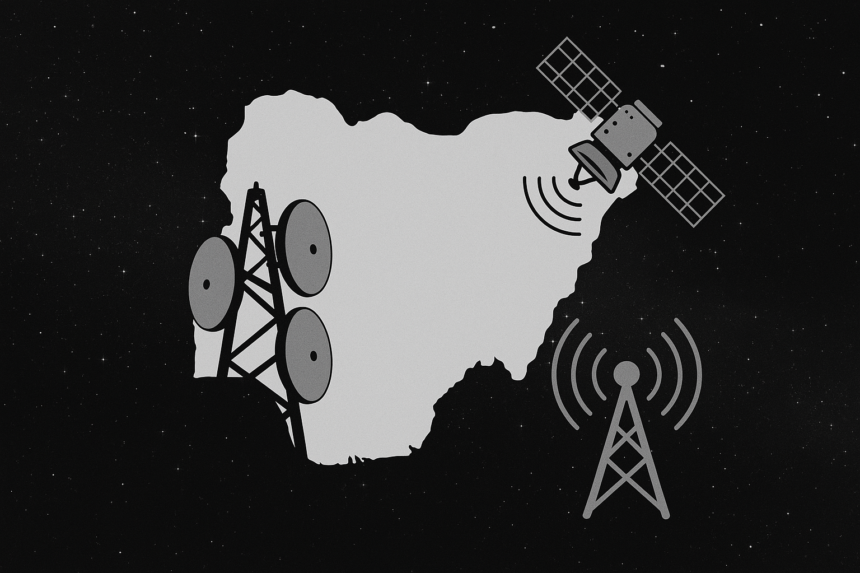Nigeria is making significant moves in its telecom and space sectors to strengthen its position as a leader in both industries. By investing in innovative telecom policies and focusing on its growing space program, Nigeria aims to expand its digital infrastructure and technology capabilities. These steps reflect the country’s commitment to building a future-ready economy that is digitally connected and technologically advanced.
What’s Happening & Why This Matters
Nigeria is on track to revolutionize its telecommunications market with the recent introduction of a 12-month airtime refund policy by the Nigerian Communications Commission (NCC). This initiative provides a more flexible approach for consumers, allowing them to reclaim unused airtime that would expire when their mobile lines are deactivated. With the growing demand for mobile services in the country, this move addresses long-standing consumer satisfaction and service delivery issues. The NCC’s proposal responds to consumer needs and aims to increase trust in Nigeria’s telecom industry.
The 12-month airtime refund policy is part of the NCC’s broader strategy to enhance the overall customer experience within the telecom sector. By allowing more time for consumers to access the remaining airtime on deactivated lines, this policy aims to increase engagement and customer retention. This initiative is essential as mobile connectivity in Nigeria continues to expand, and the telecom sector is expected to remain a key driver of the nation’s economic growth.
On the space front, Nigeria has renewed its commitment to strengthening its space program. The country ensures its space policies and regulations align with international standards, as the 2015 Space Regulations outline. This effort aims to provide a clear framework for managing space activities and the country’s growing satellite operations. During a stakeholder workshop hosted by Nigeria’s National Space Research and Development Agency (NASRDA), government officials, industry experts, and international partners discussed ways to optimize the country’s space efforts for national and regional development.
Nigeria’s focus on space regulation is critical as it seeks to expand its capabilities in satellite technology. With space activities playing a critical role in communication, weather forecasting, agriculture, and disaster management, Nigeria’s government is keen on developing its space infrastructure and leveraging satellite services to enhance national security and economic development.
Nigeria Mastering Telecom, Space
The telecom and space sectors are emerging as two of the most important components of Nigeria’s broader development strategy. With the introduction of the airtime refund policy, Nigeria is addressing critical challenges faced by consumers in the mobile market while simultaneously improving the telecom industry’s transparency and accountability. This policy aims to create a more accessible telecom sector, ensuring that consumers have more control over their mobile services.
In parallel, the country’s space program is becoming increasingly important as Nigeria looks to leverage satellite technology for various applications. Space-based solutions can offer crucial insights into climate change, agriculture, and urban planning, providing tools for better decision-making in these sectors. The government’s renewed commitment to the 2015 Space Regulations ensures that Nigeria will continue meeting international space activity standards. This will open doors for further collaborations with global partners in the space exploration arena.
Combining a consumer-friendly telecom policy and a growing space program reflects Nigeria’s forward-thinking approach to technology-driven development. By positioning itself as a key player in both the telecom and space industries, Nigeria is preparing to benefit from global advancements and technological breakthroughs.
TF Summary: What’s Next
Nigeria’s focus on both the telecom and space sectors is set to have a lasting impact on its economy and global competitiveness. The airtime refund policy introduced by the NCC offers a practical solution to improve consumer trust and service delivery within the telecom industry. Meanwhile, the country’s renewed commitment to the 2015 Space Regulations strengthens its position in space technology and satellite services, laying the groundwork for future advancements in these sectors. As these industries grow, Nigeria is positioning itself to lead in telecommunications and space innovation, ensuring that it remains at the forefront of the digital transformation in Africa.
— Text-to-Speech (TTS) provided by gspeech


